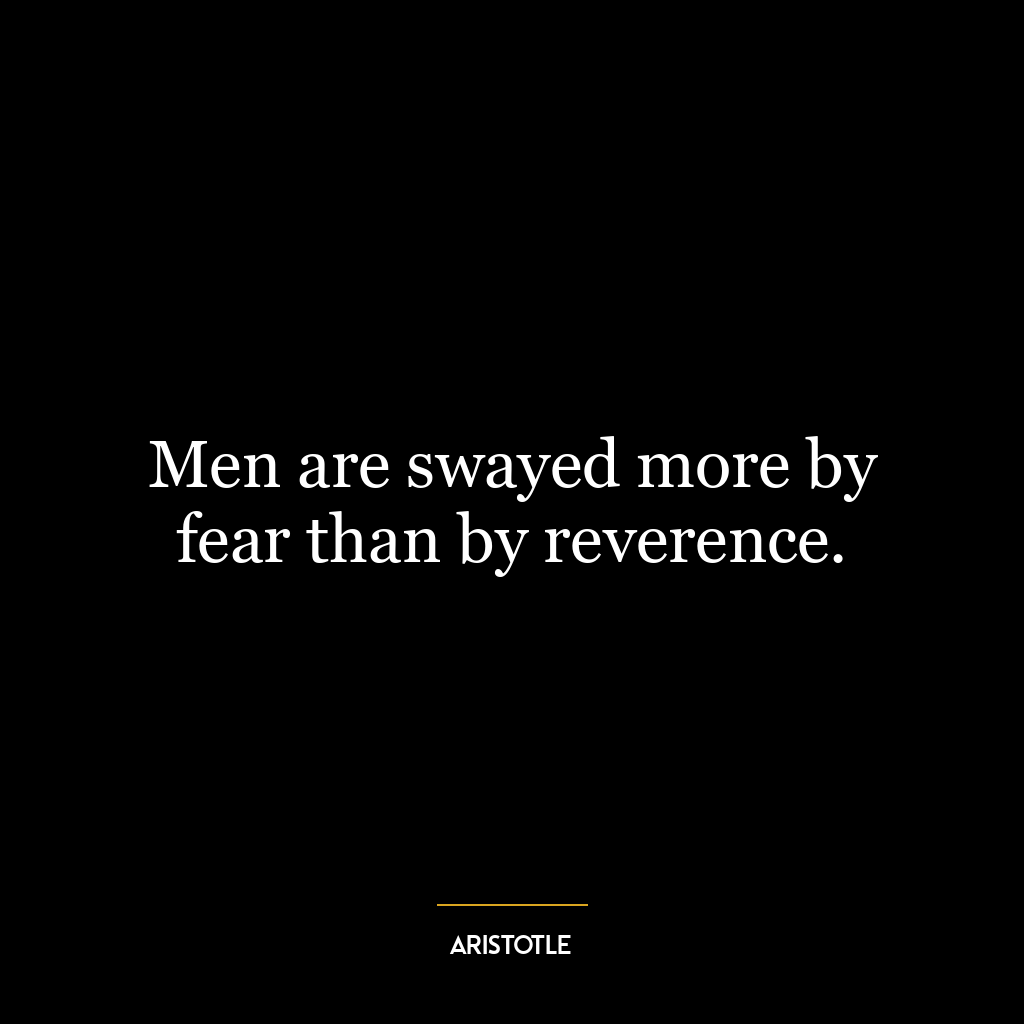“Men are swayed more by fear than by reverence” suggests that fear is a more potent motivator for human behavior than respect or admiration. This means that people are more likely to change their actions or beliefs due to the fear of negative consequences rather than the respect for authority or moral principles. Fear, in this context, can be seen as a survival instinct, pushing individuals to avoid harm or danger. On the other hand, reverence, which involves a deep respect or admiration, might not have the same immediate, visceral impact on a person’s decisions or actions.
Applying this concept to today’s world, one could argue that fear is often exploited as a tool in politics, marketing, and other areas to sway public opinion or consumer behavior. For example, fear-based advertising might emphasize the negative consequences of not purchasing a particular product or service, thereby influencing consumers to buy out of fear rather than a genuine admiration for the product. In politics, leaders or parties might use fear-mongering tactics to push their agendas, emphasizing potential threats or dangers to sway voters.
In terms of personal development, this quote may suggest that fear-based motivation, while effective in the short term, may not be as sustainable or beneficial in the long run as reverence-based motivation. For instance, studying out of fear of failing an exam might get you through the test, but it might not lead to a deep, lasting understanding or love of the subject matter. On the other hand, studying out of a genuine respect and admiration for the knowledge and learning could lead to a more sustainable, intrinsically motivated pursuit of education. Therefore, while fear can be a powerful motivator, it might be more beneficial in the long run to cultivate reverence and respect as driving forces in one’s life.















